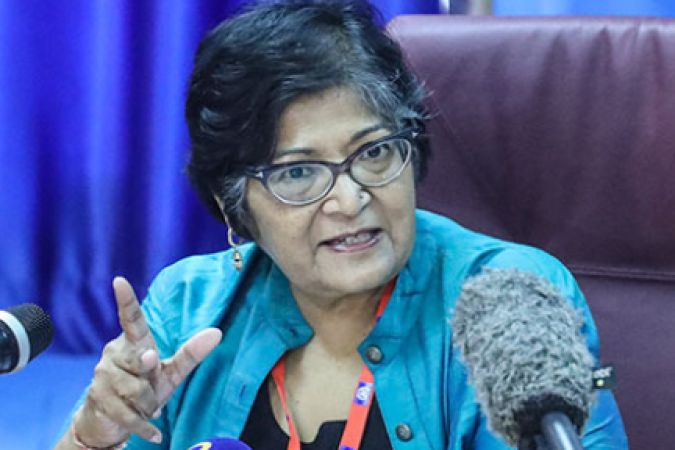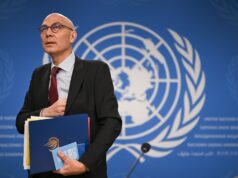
In a scathing assessment of the state of affairs in Sri Lanka, Yasmin Sooka, the director of the International Truth and Justice Project (ITJP), has cast a stark light on the deepening culture of impunity persisting within the nation. Sooka’s revelation underscores the government’s persistent failure to ensure accountability for the war crimes and crimes against humanity committed during the culmination of the civil war in May 2009.
The aftermath of the civil war has not ushered in an era of peace for Tamils in Sri Lanka; instead, they continue to face persecution both within the country and abroad. Sooka pointed out that the ongoing violence perpetrated by security forces not only inflicts harm on individuals and their families but also serves to dismantle the very social fabric upon which coexistence, tradition, and trust are built.
Of particular concern is the Government’s blatant disregard for the legitimate rights of Tamil families to mourn and remember their loved ones on November 27th, a date significant to the Tamil struggle for liberation.
The ITJP has been diligently documenting a disturbing trend since 2014, wherein torture survivors who have fled abroad face continued threats and intimidation from Sri Lankan intelligence agencies. Those attending remembrance events in the north-east are systematically photographed, later becoming targets of threats and harassment, fostering an atmosphere of fear and silencing dissent.
Sooka shared a poignant and tragic account of a man who, under the impression that it was safe to speak at a cemetery event on November 27, 2022, was later subjected to abduction, torture, and forced to flee. This individual, who left behind a newborn baby and a thriving business, symbolizes the human cost of the Government’s oppressive actions.
The interrogation tactics employed by security forces, particularly focusing on the funding of commemorations, were criticized by Sooka as missing the essence of these events. Commemorations, she emphasized, are not only acts of resistance but also serve as expressions of deep personal grief for survivors of the war, who find themselves not only victims of state-sponsored violence but also grappling with the overwhelming barrier of impunity.
Survivors consider it their moral and social responsibility to remember the dead and the disappeared, constituting a collective act of remembrance that transcends individual suffering.
Despite relentless repression, Tamil survivors abroad continue to courageously reclaim their right to remember the dead, finding new ways to articulate their experiences. These endeavors are not merely for personal catharsis but are seen as crucial for keeping the memory alive for future generations.
Sooka challenged President Ranil Wickremesinghe’s proposal for a Truth Commission, expressing doubt about survivors’ willingness to participate in a context where their basic right to mourn is denied. To make the commission successful and credible, President Wickremesinghe must take decisive action, ensuring an end to state-sponsored violence, no surveillance on November 27, and a commitment to prevent reprisals against organizers or participants.
In a plea to the international community, Sooka urged them not to remain silent in the face of this repression. She called for the deployment of international observers to ensure transparency during commemorations, emphasizing the critical need to prevent further repression. Sooka underscored the importance of guaranteeing that officers in plain clothes are not surveilling or documenting events, asserting that the diplomatic community must play a proactive role in addressing the ongoing human rights violations in Sri Lanka.




